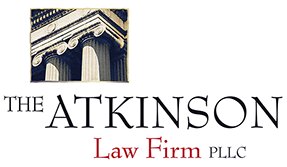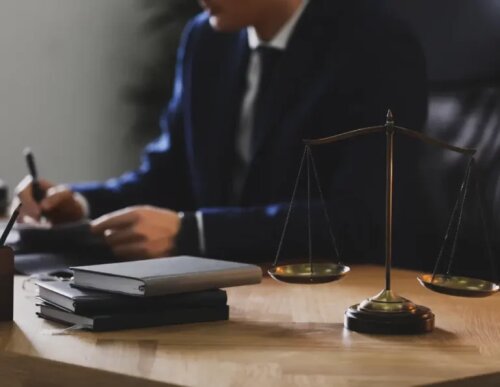Best Dangerous Product Lawyers in North Carolina
Share your needs with us, get contacted by law firms.
Free. Takes 2 min.
Or refine your search by selecting a city:
List of the best lawyers in North Carolina, United States
About Dangerous Product Law in North Carolina, United States
Dangerous product law, also known as product liability law, covers legal claims and responsibilities associated with products that cause injury or harm due to being defective or hazardous. In North Carolina, these laws allow injured consumers to seek compensation when a product fails to perform safely as expected, whether the issue arises from a design defect, manufacturing flaw, or inadequate warnings. Both state and federal regulations may impact these cases, and navigating the legal complexities often requires careful documentation and understanding of your rights.
Why You May Need a Lawyer
There are several situations where seeking the help of a lawyer experienced in dangerous product law in North Carolina is important:
- You have suffered injury or illness after using a consumer product, automobile, medical device, or pharmaceutical.
- A loved one has been harmed or killed due to a suspected faulty or recalled product.
- The product manufacturer or seller disputes your injury claim or blames your use of the product.
- You have received a settlement offer and are unsure if it is fair or complete.
- You need guidance in preserving evidence and documenting your injury for a strong case.
- You are one of several people affected by the same dangerous product (potential class action case).
Lawyers help protect your interests by evaluating evidence, negotiating with manufacturers, and representing your case in court if needed.
Local Laws Overview
North Carolina has specific statutes and court precedents concerning dangerous product claims. The state recognizes three main types of product liability claims:
- Manufacturing Defects: Issues that occur during the making of a product, resulting in an unsafe item even if designed properly.
- Design Defects: Flaws that exist in the product’s design, making every unit potentially dangerous.
- Failure to Warn: Insufficient instructions or warnings about the proper use or risks of a product.
Unique to North Carolina is the doctrine of “contributory negligence.” If you are found to be even slightly at fault for your own injury, you may be barred from recovering damages. Additionally, the state has a statute of limitations for filing these claims, generally requiring you to initiate legal action within three years from the date of your injury. Some exceptions apply, especially for latent injuries or illnesses.
Product liability claims may be based on negligence, strict liability, or breach of warranty. Understanding these legal theories can be complicated, so consulting a knowledgeable attorney is important.
Frequently Asked Questions
What is considered a dangerous product in North Carolina?
A dangerous product is any item that poses an unreasonable risk of injury or harm to consumers when used as intended, due to defects in design, manufacturing, or inadequate warnings.
What steps should I take if I am injured by a dangerous product?
Seek medical attention, keep the product and all associated packaging, document your injuries, note how the incident occurred, and contact a lawyer experienced in product liability.
Do I need to prove the product was defective?
Yes, you must demonstrate that the product was defective and that this defect directly caused your injury. Expert testimony is often necessary to establish this link.
How long do I have to file a dangerous product lawsuit in North Carolina?
Generally, you have three years from the date of injury to file a claim, though there are exceptions for cases involving latent injuries.
Can I still recover damages if I was partially at fault?
North Carolina follows contributory negligence rules. If you are found even slightly at fault, you may not be able to recover damages.
What damages can I recover in a dangerous product case?
You may recover compensation for medical expenses, lost wages, pain and suffering, disability, property damage, and in some cases, punitive damages.
Are product recalls required for my claim to be valid?
No, a recall is not required. You can file a claim regardless of whether the product was officially recalled.
Can I take legal action against a retailer or distributor, or only against the manufacturer?
You may be able to hold manufacturers, distributors, and retailers liable, depending on the circumstances.
What if I was using the product in a way not intended by the manufacturer?
Improper use may affect your claim. However, if the misuse was reasonably foreseeable, you may still have a valid case.
How much does it cost to hire a product liability lawyer?
Many lawyers in North Carolina work on a contingency fee basis. This means they only get paid if you win your case, taking a percentage of any settlement or award.
Additional Resources
If you are seeking information or support regarding dangerous product law in North Carolina, consider these resources:
- North Carolina Department of Justice - Consumer Protection Division
- U.S. Consumer Product Safety Commission
- North Carolina Bar Association - Lawyer Referral Service
- Legal Aid of North Carolina (for those who qualify financially)
- Centers for Disease Control and Prevention - Product Safety Information
Next Steps
If you believe you have been injured or affected by a dangerous product in North Carolina, here are steps to consider:
- Seek immediate medical treatment for your injuries.
- Preserve the product, packaging, receipts, and any related materials or documents.
- Take photos of your injuries and the product.
- Do not attempt to repair the product or return it to the seller until you have spoken to a lawyer.
- Document your experience and keep a detailed account of the incident and aftermath.
- Contact a qualified North Carolina product liability attorney for a consultation to discuss your legal options.
- Follow your attorney’s guidance on communication with insurers, manufacturers, or other parties.
A lawyer can help you understand the complexities of North Carolina product liability law, evaluate your claim, and take necessary steps to seek compensation. Taking prompt action will help preserve your rights and strengthen your case.
Lawzana helps you find the best lawyers and law firms in North Carolina through a curated and pre-screened list of qualified legal professionals. Our platform offers rankings and detailed profiles of attorneys and law firms, allowing you to compare based on practice areas, including Dangerous Product, experience, and client feedback.
Each profile includes a description of the firm's areas of practice, client reviews, team members and partners, year of establishment, spoken languages, office locations, contact information, social media presence, and any published articles or resources. Most firms on our platform speak English and are experienced in both local and international legal matters.
Get a quote from top-rated law firms in North Carolina, United States — quickly, securely, and without unnecessary hassle.
Disclaimer:
The information provided on this page is for general informational purposes only and does not constitute legal advice. While we strive to ensure the accuracy and relevance of the content, legal information may change over time, and interpretations of the law can vary. You should always consult with a qualified legal professional for advice specific to your situation.
We disclaim all liability for actions taken or not taken based on the content of this page. If you believe any information is incorrect or outdated, please contact us, and we will review and update it where appropriate.
Browse dangerous product law firms by city in North Carolina
Refine your search by selecting a city.

















